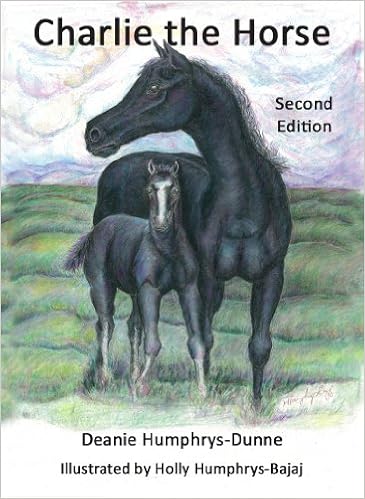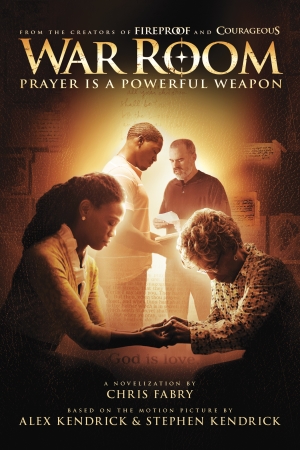Tell me a little about yourself (where you live, who you
are, what you look like, what you hope to achieve, etc.)
My name is
Catrina Amanda Dallas. I am the only
child of Amanda Alice Gardner and Captain Anthony “Tony” Dallas, USAF. I’m tall with short, dark brown hair and eyes
to match. I was born in Helena, Montana
in 1936, but have spent most of my life with my father on a planet called
Argyle, located on the opposite side of the galaxy as Earth. I currently reside in Bates, Idaho. I’m married to Britten Garrett and have three
children. My husband and I are partners
in a small worldwide salvaging business, Water & Aircraft Salvage, WACS,
with his younger brother, Bryan and his Uncle Cal, based out of the Driggs,
Idaho airport.
What do you like to do in your spare time?
My husband and I
like to spar with staffs and short swords.
I’m usually the one that kicks his trash, most of the time. I also like to scuba dive and fly airplanes. Just about anything my hubby likes to do, I’m
right there with him. It’s a good thing
we like the same things. I’ve also
rediscovered music. I loved to listen to
the radio when I was a young girl in the 30s and 40s, but music has changed a
great deal since I’ve been gone and I am enjoying getting to know it
better. I especially like funk.
What is your favorite color and why?
Yellow is my
favorite color. It was my parent’s
favorite color too. My mother had a
yellow dress she loved, and she looked great in it. My dad loved to see her in it. My dad flew bombers in the war and he named
his plane after my mother; called it Amanda. He had a picture of her painted on the side
of his B-25, wearing her favorite yellow dress.
He said it was what helped get him through the war. With a back story like that, how could yellow
not be my favorite color?
What is your favorite food? Why is it your favorite?
Most of my life
has been spent eating Argyle food. It’s
not much different than most Earth food, they just call it something else. My dad and I taught our clan Earth ways of
seasoning food. It took some searching
to find all the Argyle equivalent of Earth herbs and spices, but I can make one
heck of a barbecue sauce that will knock your socks off. I still like southern fried chicken and a big
Idaho baked potato the best.
What would you say is your biggest quirk?
I’m not necessarily
a perfectionist, but if something isn’t right, or I find I’m not doing my best,
I want to correct it. I am a champion
with a sword and have practiced most of my life to become as good as I can be. Having said that, I try to be the best at any
hand to hand fighting like that. I
recall teaching Britten how to use a short sword; he stunk, plain and
simple. So we had to start off small and
work our way up. I found out he was very
good at using a staff. So much so, he
bested me a couple of times. I resolved
right then that I wouldn’t let him beat me at staff fighting again. I pretty much clean his clock every time now,
which makes me feel really good, because he is very good with the staff. I think we enjoy the staff the most because
it’s something we love to do together.
What is it about your antagonist that irks you the most,
and why? Share a line in the book where this irk is manifested.
My antagonist is Ivan Rubella, Clan leader of the Kenlar. He’s so arrogant and self-centered. He has no respect for anyone or anything,
very little manners. Well, no, he has
manners, I’ve seen him use them, but only rarely. He’s big and smelly and thinks nothing is
more important than killing and conquering, and that includes women. My father and I were describing Ivan to Britten
and Bryan when they first came to Argyle:
“Ruled
by your favorite,” Tony stated coldly.
“Yes,
my favorite,” Cat echoed disdainfully.
“Nice
guy, close personal friend or just a kissing cousin?” Brit asked, as the gadget
Bryan was fiddling with started to make a quiet whining sound.
“Not
even,” Tony grumbled unhappily.
“The
animal’s animal is Ivan Rubella,” Cat spat completely revolted by the thought.
“Sounds
like some kind of a disease,” Brit commented, smirking.
“Believe
me, disease fits pretty well, he’s a diseased animal.”
“Tried
to have himself married to Cat so he could take over Thulsa without a fight,”
Tony said.
I think you get the picture here, but
there are plenty of other places in the book where he is front and center,
confirming the above exchange.
What or who means
the most to you in your life? What, if anything, would you do to keep
him/her/it in your life?
For most of my life, I’ve had my father there with me
always. He and our friend Carl Lott were
my closest advisors and my protection as Queen of Thulsa. But spending so much time away from Earth, we
both missed my mother something fierce, but I would have to say the most
important person is my husband Britten. My
parents fell in love at first sight, got married three days later. I don’t know if it’s in the Dallas DNA or
what, but Brit and I did the exact same thing.
We loved each other the moment we met and he asked me to marry him three
days later. That was an intense three
days to be sure, but it didn’t take very long to know how we felt about each
other. I mean, I had a hard time trying
to decide what to do about my responsibilities in Thulsa, being their Queen and
all. It was hard to weigh those
responsibilities and the love I have for those people against being in love
with Brit and going home to Earth; I had to choose. But a couple of things really sealed the deal
for me and Britten. He stood up to Ivan
and Talon; men who were much larger and much better at fighting. I mean, I can certainly fight my own battles
and if the law hadn’t forbidden it, I would have gotten down into the arena and
taken care of business myself. But Britten
willingly to put his life on the line for me and my honor. He told me some time afterwards that he was
scared out of his pants, but he had to act.
The other thing that really made it for me was, even though we became
separated trying to escape back to Earth, he promised me he’d come back for me. It took a while to make that happen and he,
my father and Britten’s friends risked their lives doing it, but he came back for me.
And yes, absence does make the heart grow fonder.
What one thing would you like readers to know about you
that may not be spelled out in the book in which you inhabit?
I’m a real person. In the book, I become queen of an ancient
civilization on another planet on the other side of the galaxy. But in real life, I really do exist as a
person. My personality and demeanor
described in the book are as close as they could be to me in real life. I’m not a queen outside of the book and haven’t
gone on any grand adventures like what’s described in the book, but I have
lived a wonderful life full of adventure and could easily fill that role described
in the book if called on to do so. I’m
not controlling, but I do like order.
Things just work better that way.
Is everything orderly in my life?
Excuse me while I step over here to laugh uncontrollably!!
If you could tell your writer (creator) anything about
yourself that might turn the direction of the plot, what would it be?
My writer
understands me pretty well, he always has.
He knew my personality for many years before I was created on
paper. I may not fully understand or
appreciate him, but I know I will someday.
When he left us, and I say all of us in the book, not just me, he left for
other projects, but promised to come back and we’d have another fun adventure
together. He has never given me any
reason to ever doubt him. Did I say
fun? I’m not sure this last adventure
was fun. Maybe it was for the author and
the reader. It was certainly action
packed and it was fun getting to know the writer as well as I do now. Come to think of it, I don’t remember him
ever saying anything about it being fun, only that it would be worth it. He hasn’t told me what he has up his sleeve
for these next books, but I know I won’t be disappointed.
Ask me any question. I've always wanted to know what a
character thinks about writers like myself. I'll answer the question at the end
of this interview.
Do all writers
think of themselves as god in the writing sense? When you get right down to it, the characters
can’t help but look at you that way. I
remember a scene my writer was formulating and I had to learn new lines and
actions about ten times before they stopped changing things around. Do you know how tough that can be on a
character, especially when it’s an emotional scene? I do know that my writer listens to me and Brit. I know there were several times when he
started out writing our scenes and personalities one way and we both decided
that no, that’s not us, you need to write us this other way.
Great question! I bet my characters are thinking exactly the same thing when I mess with changes - especially emotional ones. On the other hand, the book has to be right, right? I mean, you can't have a main character doing something out of character, can you? But I see your point. It would be much easier to get 'you' right the first time. As a writer, I would like that, too, but the truth of the matter is, many drafts are in store before the book in question is finished, so just hang on.
***
Thank you, Catrina!
Learn more about Catrina and her creator at the following sites:
This book is printed through Ingram Spark and is available through any of its partner distributors worldwide.















